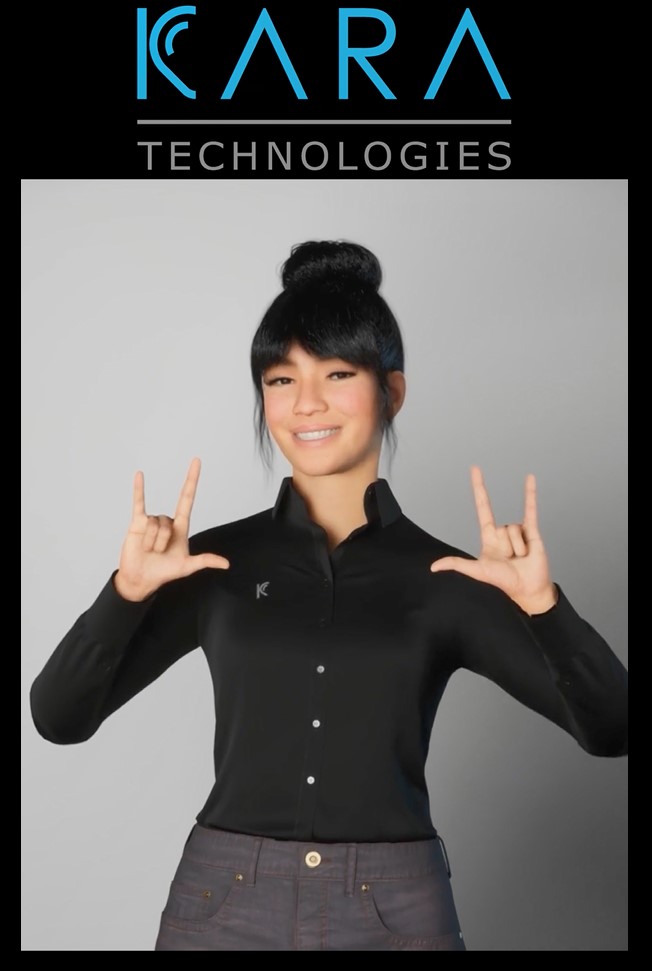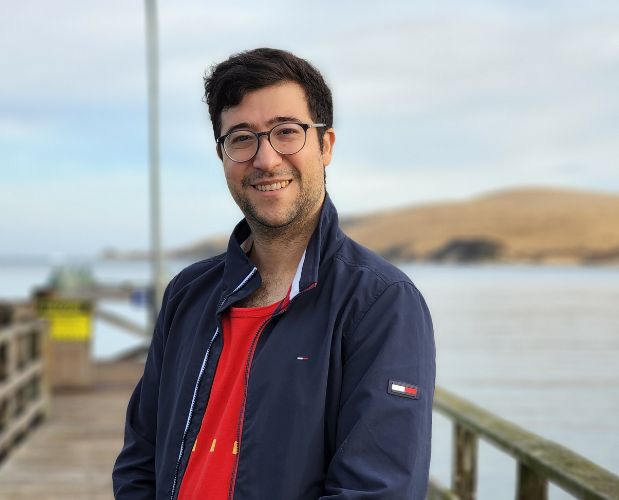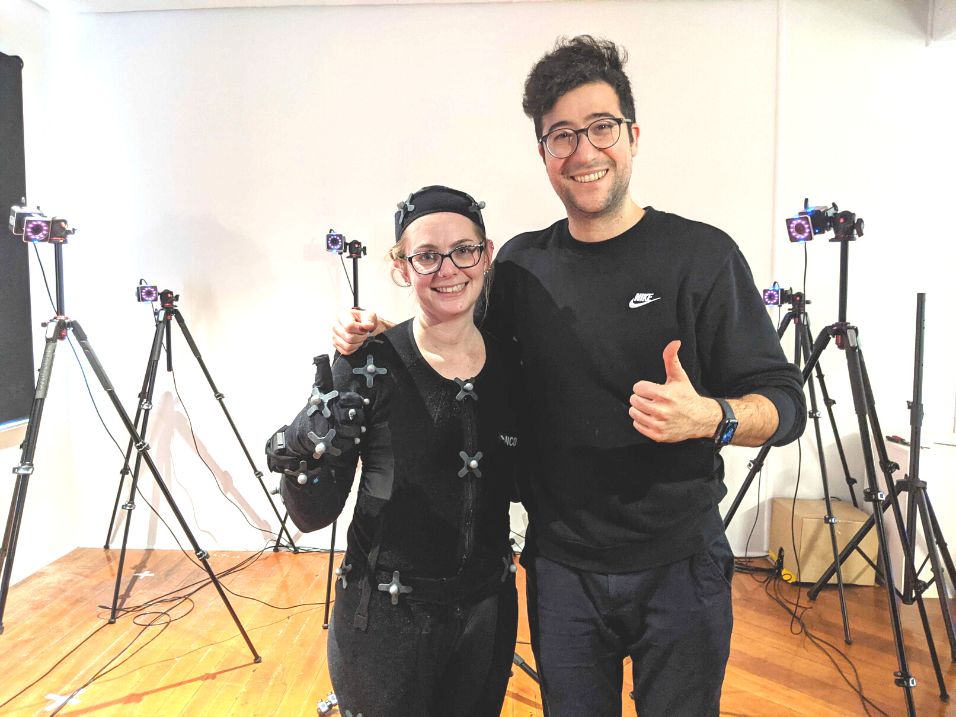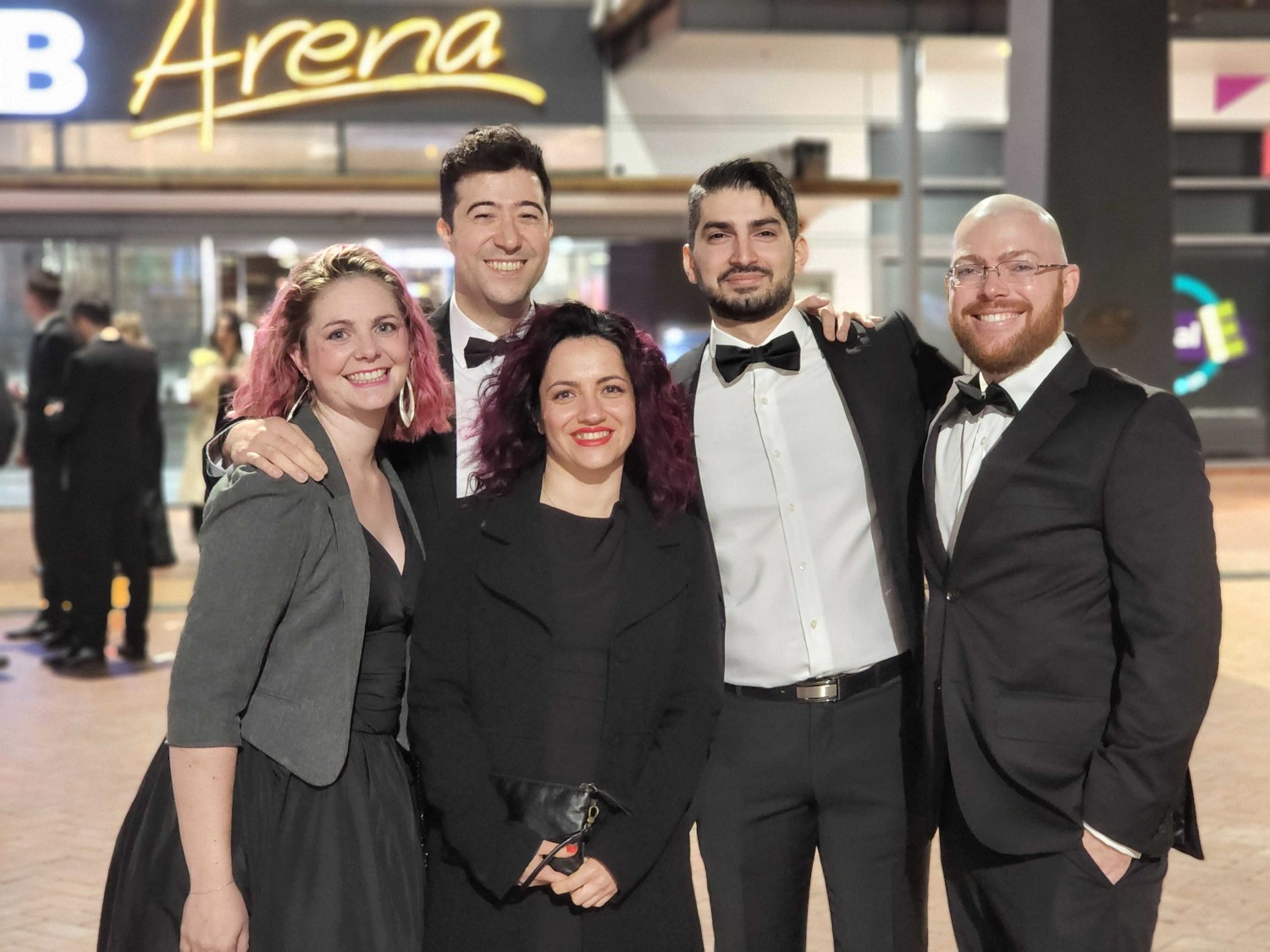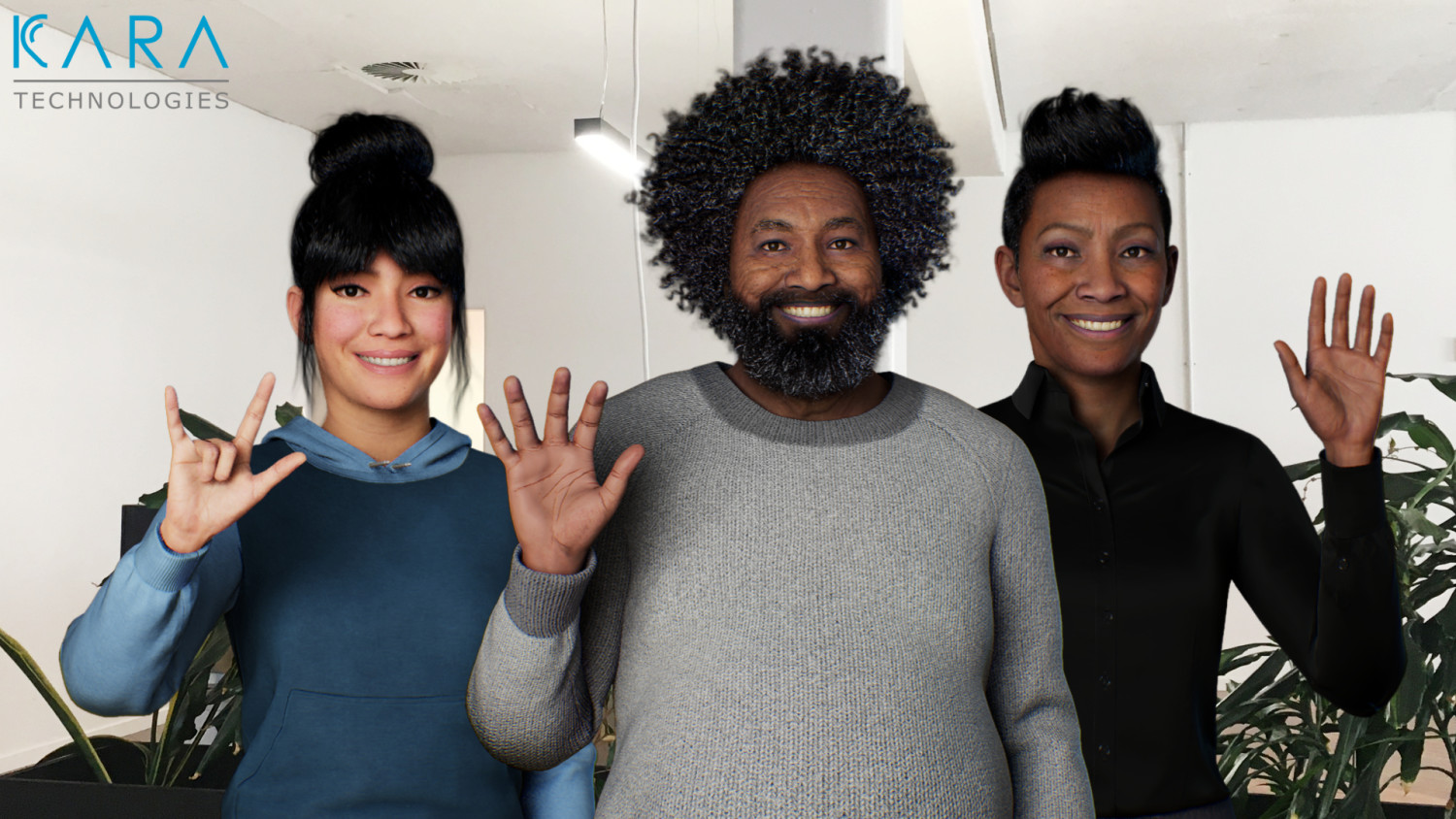Kara Technologies is a small start-up with a big vision: making the lives of Deaf people as easy as those of hearing people. To do that, it’s developing digital sign language avatars that will ultimately be able to sign everything Deaf people need or want to know.
“English isn’t Deaf people’s native language. It’s unfair to ask a community to rely on their second language to access vital information.”
Grace Covey, Kara Technologies
“English isn’t Deaf people’s native language,” says Grace Covey, Kara Technologies’ Deaf communications manager and sign language expert. “It’s unfair to ask a community to rely on their second language to access vital information.”
The seed for Kara Technologies was planted in 2016, when Arash Tayebi, then a PhD student in electrical engineering at Waipapa Taumata Rau, University of Auckland, lost his hearing in one ear and was told he had a 30 percent chance of becoming completely deaf.
As he learned New Zealand Sign Language and got to know the Deaf community, Tayebi had the idea of ‘teaching’ digital avatars to sign.
